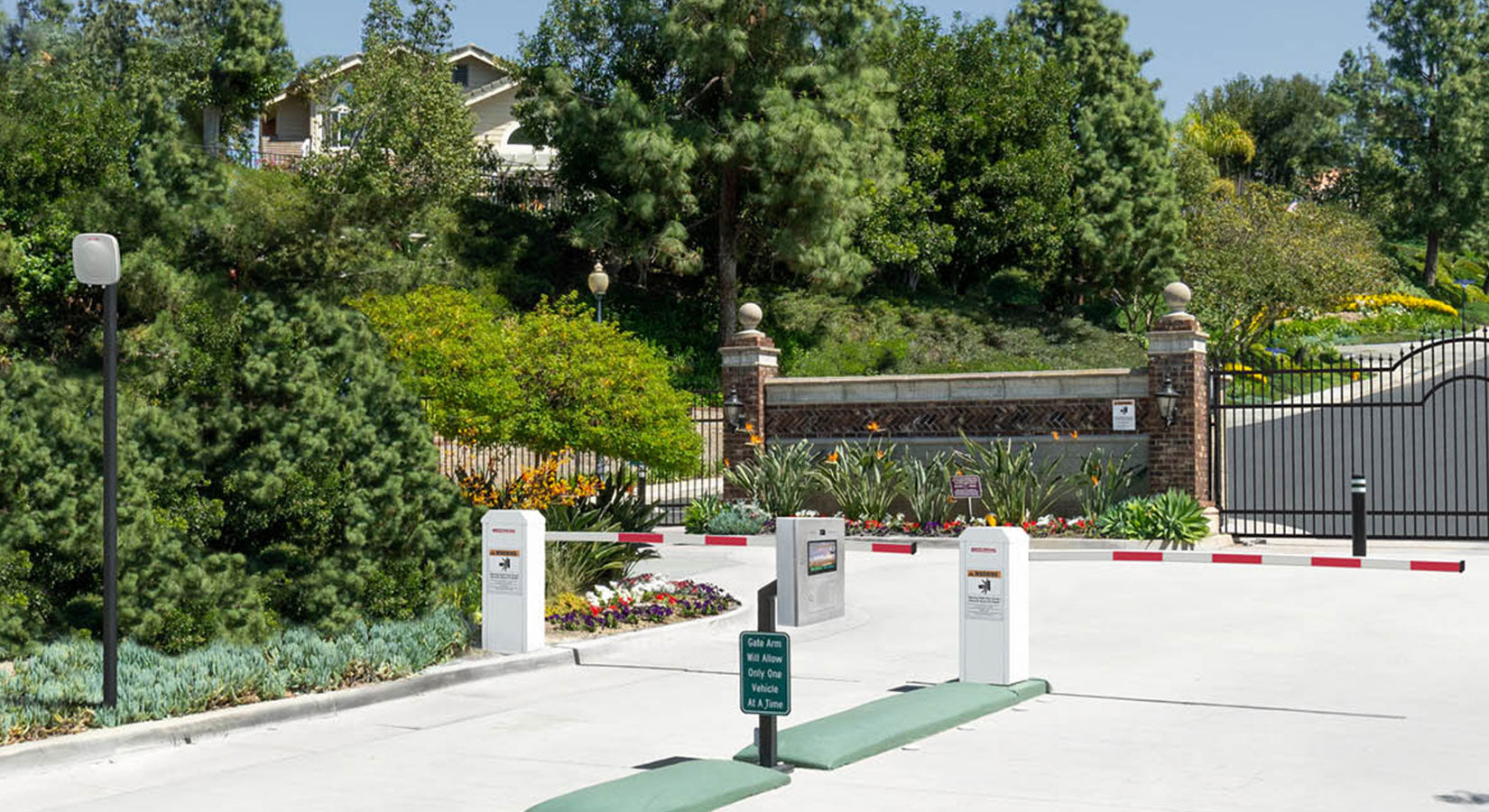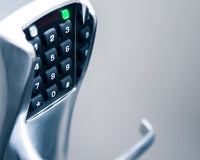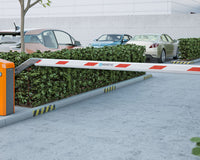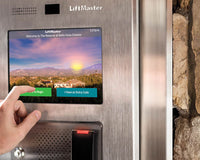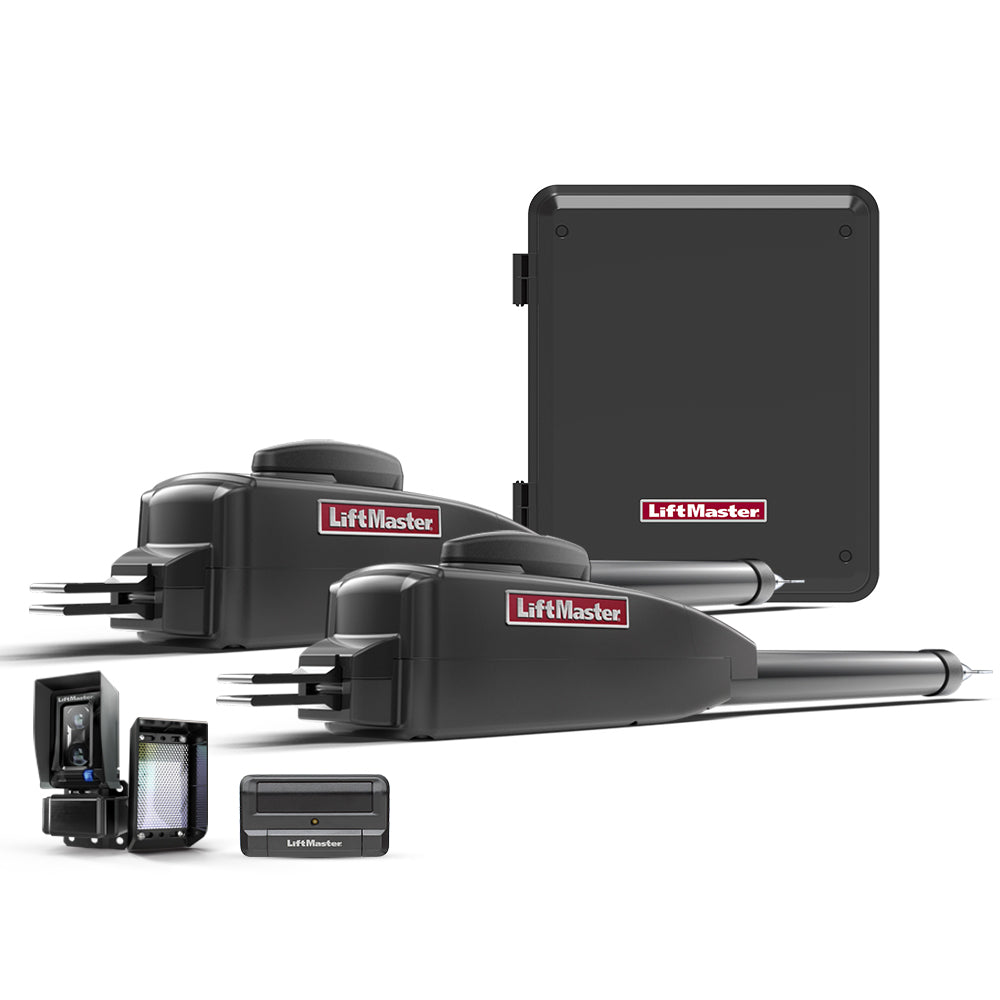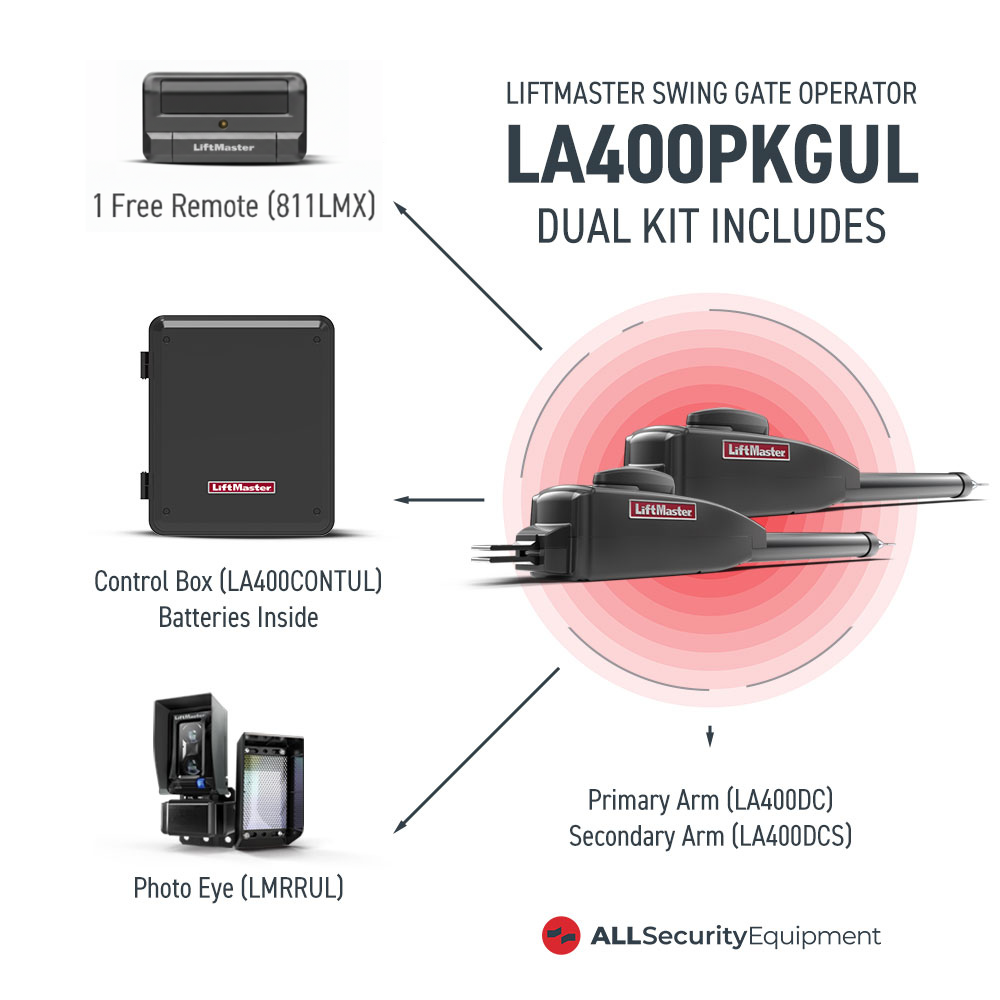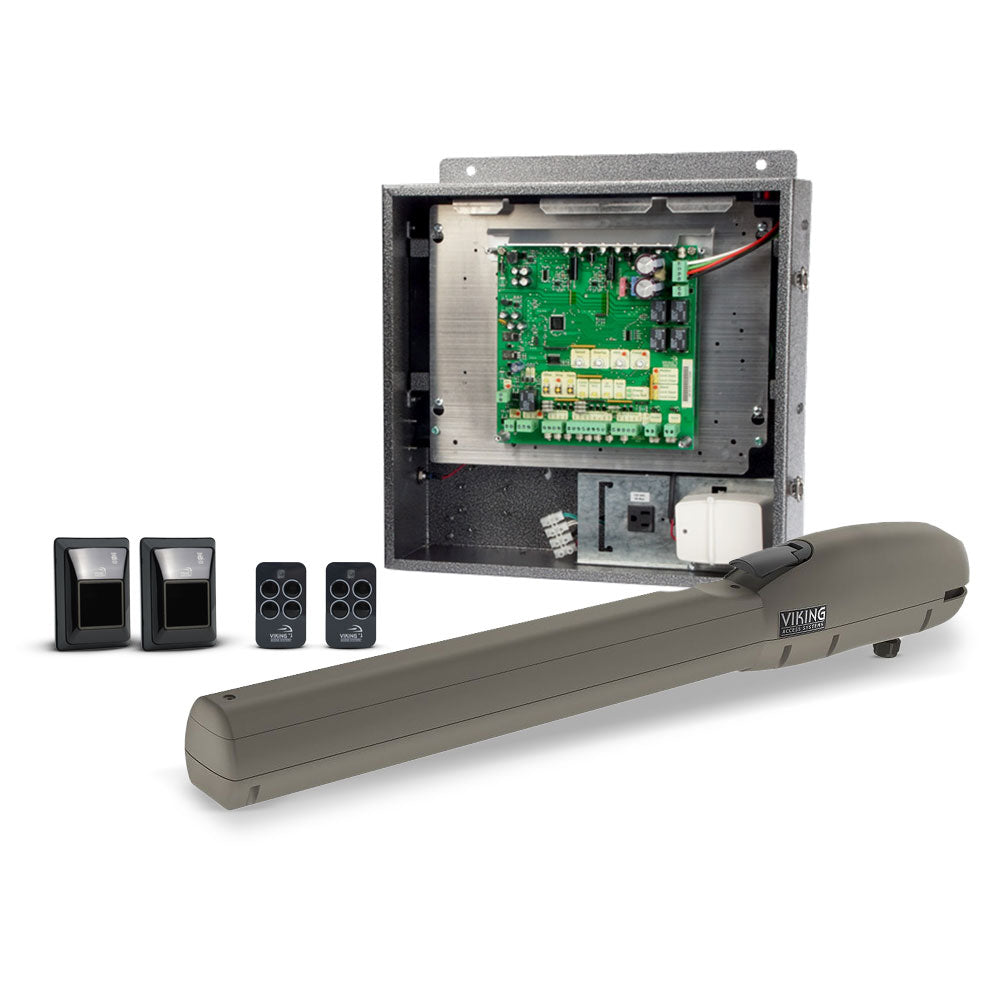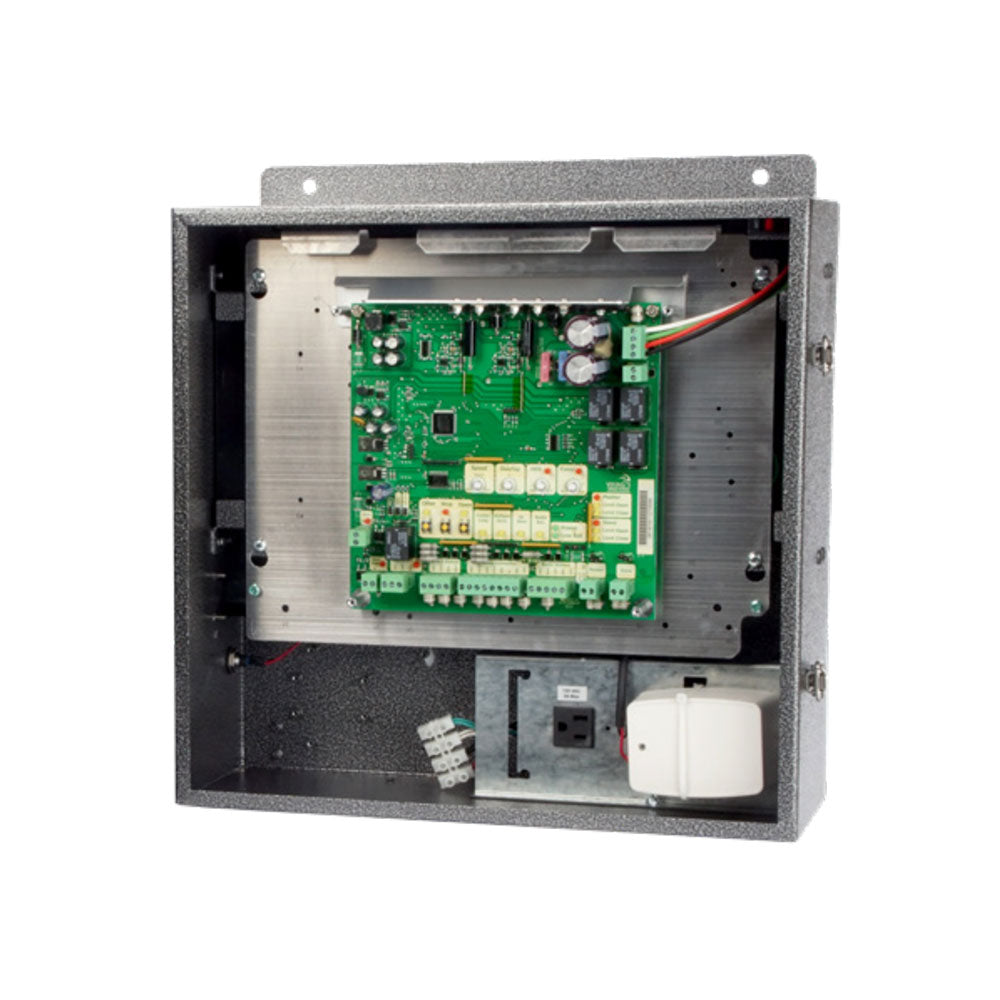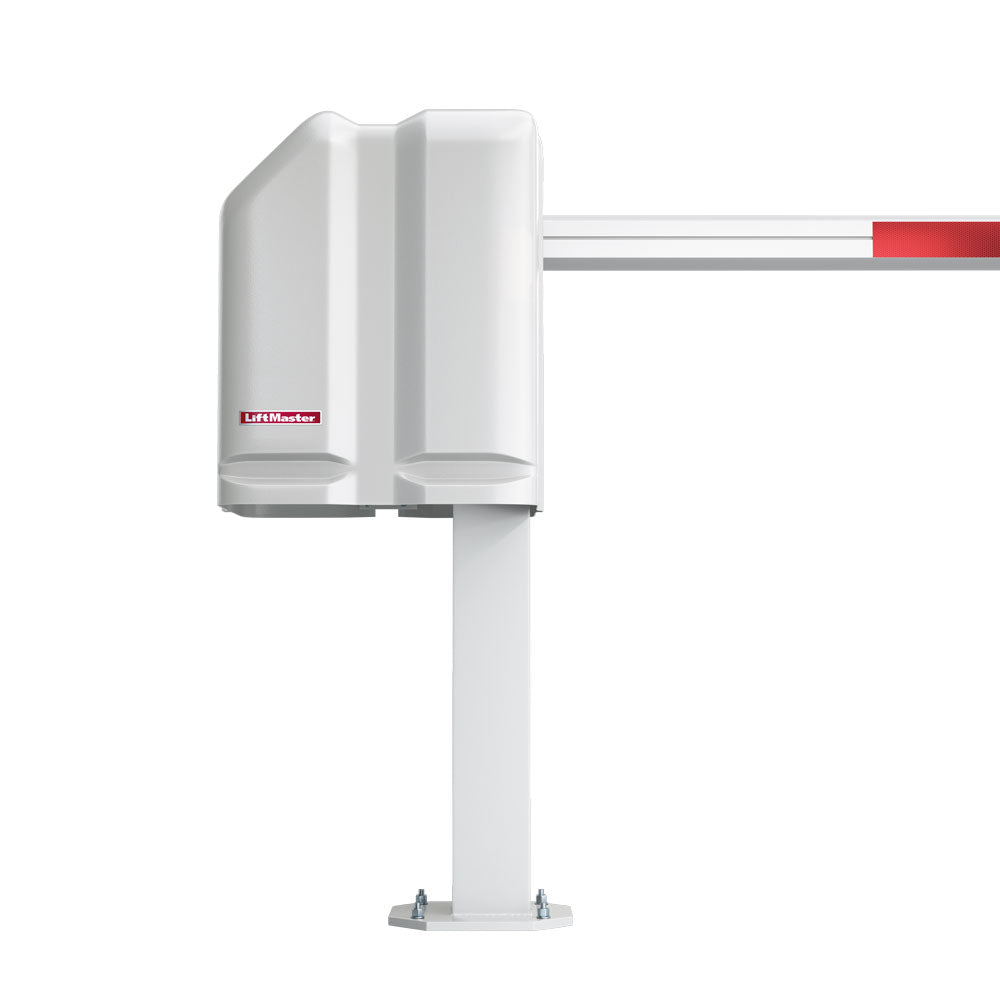One of the main reasons so many people choose to live in a gated community is the security and peace of mind that this provides.
Gated communities with robust residential gate access control systems are secure and peaceful.
Anything that could disturb that peace or pose a security threat has to go through the central gate access control system first, preventing any unauthorized entry.
Residential gate access control systems are designed to only allow access to those who have permission to be on the property. This means you can control who comes and goes both on foot and in vehicles.
In this article, we will discuss:
- What gate access control is.
- The basic elements of access control systems.
- The benefits of using gate access control systems in both residential and commercial applications.
What Is Access Control?
Access control is a mechanism whereby a property's entry or access is regulated and controlled. A physical barrier like a driveway or pedestrian gate controls access to the property or a specific area.
Access control involves implementing security measures to determine who is authorized to enter a property and to prevent unauthorized individuals from accessing premises.
Access control allows you to manage the overall access to your property and control the flow of people or vehicles in various settings, including both residential communities and commercial settings.
The barriers used in this type of access control can include gates, turnstiles, or any other barrier that can be opened or closed to control access.
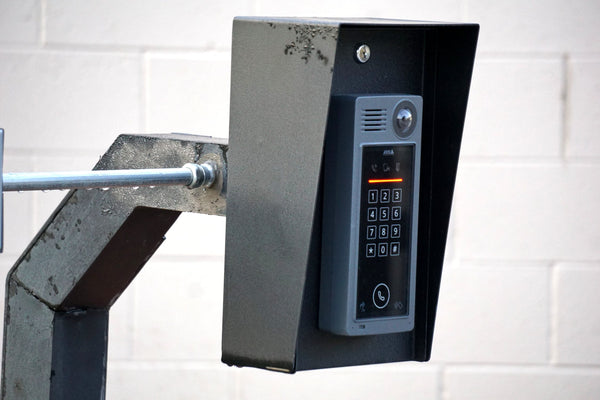
How does access control work?
Access control will work differently depending on the specific gated community and its access control rules. However, there are some basic main components of how access control is applied to a gated property.
Entry points
A gated property will usually have one or more entry points, which are designated locations where individuals or vehicles can enter the property. These entry points are equipped with a gate or barrier to ensure that not just anyone can access the property.

At the entry points described above, access control devices will usually be used to authenticate those that are seeking to access the property. Common devices include:
- Proximity cards.
- Key cards.
- Key fobs.
- Electronic credentials like a fingerprint.
- PIN codes that are entered into a keypad.
- A cell phone app.
See more Access Control Accessories.
Those who are authorized to enter the property, such as residents, will have an access control device so that they can enter and exit the property as they please. This ensures authorized access.
Anyone who doesn’t have one of these devices can’t access the property freely and will have to go through an authentication process instead.
Often, the gate used in an access control system will run on an automatic gate opener, which will be triggered by access control devices to open or close.
Access control systems
These systems are designed to manage and control who can access the property to keep it secure.
In the case of gated communities, a gate access control system will usually be used.
Access control systems will often include:
- Control panels or software.
- Electronic locks.
- Readers to scan access control devices.
- A database that stores information about authorized individuals, including their credentials and permissions.
An entry system will often be fitted with a gate intercom system where visitors can request to be given access to a property by a resident.
Authentication and verification
When a resident arrives at the entry point, they will need to present their access control device to either a device reader or a security guard. The access control system will then verify the authenticity and validity of the device by matching it with information stored in the database.
Granting or denying access
Based on the authentication and verification process, the access control system determines whether the person is granted or denied access. If the presented device is valid, the gate or other barrier will open and allow entry. If access is denied, the entry system will remain closed.
Monitoring and surveillance
A gated community will also often use surveillance cameras and other monitoring systems to provide added security.
In addition to the security benefits that access control provides, these communities also often have a security guard present to visually inspect credentials, verify identities, and provide additional security.
Visitor management
For anyone wanting to visit a gated community, there is typically a process in place that grants temporary access. This can involve pre-registration by the resident, visitor registration at security entrance, or remote verification by the resident.
Commercial Property Access Control
Control systems aren’t only suited to gated driveways in residential areas, they’re also ideal for business premises.
As a business owner, you have plenty of assets on your property that you need to protect. A gate access control system is one of the best ways to secure your business property.
How does access control protect commercial buildings?
Your business likely has many visitors throughout the day, including delivery drivers, employees, contractors, and guests or customers. This creates a lot of traffic to try and monitor and control manually.
Gate access control is an excellent solution to ensure that only authorized people can access your commercial facility. It also means you get to monitor who exits and enters your property throughout each day.
It provides convenience in the sense that it automates all the aspects of your access control, ensuring the safety of your business and your visitors.
Types of Access Control Systems
Now that you know more about access control and how it can provide safety in both residential and commercial environments, let’s take a look at some of the most popular control system options available to secure your property.
There are several types of systems to choose from, and if you’re not sure which one is best for your specific situation, you’re welcome to contact our team for assistance.
A gate intercom system
This is probably the most common and sophisticated type of access control system. Gate intercom systems are widely used in residential buildings as they provide superior security.
Intercom systems, or intercommunication systems, act as door or gate phones through which a resident and their visitor can communicate when a visitor arrives at the gate.
Some intercom systems only provide audio, while others provide both audio and video. The biggest advantage of gate intercoms that provide both audio and video is that you can put a face to whom you are talking to at the gate.
These intercom systems usually fall into two categories: wired or wireless.
As ideal as these systems are, they might be less appropriate for larger gated communities with a lot of visitor traffic. Each visitor would have to call their respective hosts to gain access. Not every host responds immediately, which might cause delays and queues at the gate.
These systems are also susceptible to vandalism and breakage, and repairing them is costly.
Driveway Gate Access Control

Driveway gate access control systems are more advanced than intercom systems. This is mostly because they incorporate an intercom system and a license plate reader (LPR).
Depending on what kind of driveway gate access control system you implement, it could have audio only, or both audio and video.
This kind of gate access control system reads every license plate that drives through the gate.
The resident can either whitelist certain license plates of trusted friends and family members, meaning these vehicles can drive through automatically at any given time, or they can choose to grant access every time any visitor arrives at the gate.
This type of gate access control is ideal for large, gated communities and commercial properties that get a lot of vehicle traffic instead of foot traffic.
Telephone Entry Systems
These systems are a lot like intercom access systems in that visitors can request access to the premises by dialing a specific number, and the resident can then either grant or deny access.
With a telephone entry system, each resident is given a PIN code that they can use to grant themselves access. Although it may not be as sophisticated as other systems, it’s still an effective way to manage access in residential establishments.
This type of entry system usually requires a hardline system and must be updated on-site rather than remotely.
Radio-frequency identification (RFID) gate access control systems
Using radio waves, RFID systems scan and read data stored within RFID tags. This kind of technology proves reliable enough and are used in gate access control systems across the globe.
Many RFID systems use keycards to grant access. Every resident has their own access device, like a keycard registered in the system's database. Whenever they scan their card at the entry point, the system checks to see if it's actually stored in the system and grants or denies access accordingly.
While these systems are ideal for restricting access to only those who have keycards, they have one major shortfall: keeping track of the actual keycards. The residents must have the keycard with them, or they risk being locked out.
Another issue is the running cost and employees needed to operate this system. Property managers must order, assign, and give residents their keycards. They also have to keep track of all of them and replace and deactivate any lost keycards.
There's also one real security threat that arises when a keycard gets stolen and the resident in question takes a while before reporting the theft to have it deactivated.

Cellular Gate Access Systems
As billions of cell phones are in use today, it's only logical that a cell phone gate access system would exist.
This kind of system relies on Bluetooth technology and a smartphone app. The resident needs to download the app and connect it to the Bluetooth device at the gate. They then only need to press a button on the app to gain access.
The biggest issue with this kind of system is that the Bluetooth range is limited, meaning the resident must be close to the gate—about 30 feet—to operate it.
What to Consider for Outdoor Gate Access Control
If you’re interested in gated community access control, All Security Equipment has everything you’ll need to set up your system.
Remember that your gate access control system will likely be stationed outdoors, meaning you need to choose equipment—like your automatic gate opener—that can withstand weather conditions and other environmental factors.
Additionally, you’ll need to consider things like how much traffic will pass through the control system each day, and how you want to identify visitors or guests entering your property.
Choosing the Right Gate Access Control System for Your Needs
For businesses and property owners, the best way to keep your property secure is to use gate access control. A gate entry system provides an additional layer of security, making it much harder for unauthorized individuals to enter your residential estate or commercial building.
Gate access control ensures that only authorized people or vehicles can access your premises and helps you monitor visitors requesting access. Choosing the right system requires considering several factors, such as how often the entry point is used and the level of security you need to protect your home or business.
As experts on entry systems, our friendly team is available to assist you in investing in the right equipment and accessories to ensure your gate entry system is efficient, convenient, and secure. You can contact us via our website for guidance or browse our range of access control equipment.

